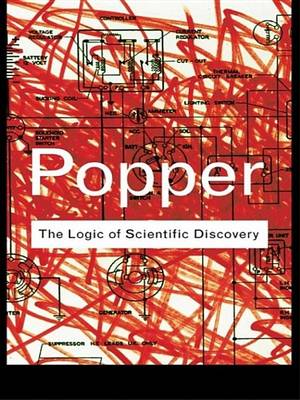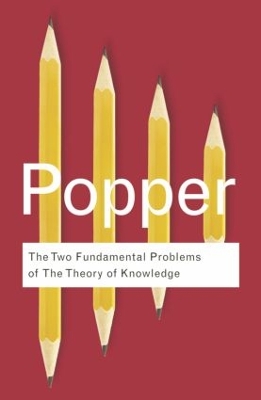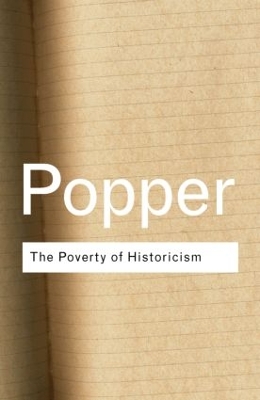Routledge Classics
8 total works
Conjectures and Refutations is one of Karl Popper's most wide-ranging and popular works, notable not only for its acute insight into the way scientific knowledge grows, but also for applying those insights to politics and to history. It provides one of the clearest and most accessible statements of the fundamental idea that guided his work: not only our knowledge, but our aims and our standards, grow through an unending process of trial and error. Popper brilliantly demonstrates how knowledge grows by guesses or conjectures and tentative solutions, which must then be subjected to critical tests. Although they may survive any number of tests, our conjectures remain conjectures, they can never be established as true. What makes Conjectures and Refutations such an enduring book is that Popper goes on to apply this bold theory of the growth of knowledge to a fascinating range of important problems, including the role of tradition, the origin of the scientific method, the demarcation between science and metaphysics, the body-mind problem, the way we use language, how we understand history, and the dangers of public opinion. Throughout the book, Popper stresses the importance of our ability to learn from our mistakes. Conjectures and Refutations is essential reading, and a book to be returned to again and again.
'A powerful and important book. It is a criticism of a set of dogmas which underlie the most influential political theories, and in consequence powerfully affect the actual conduct of human affairs. Dr Popper writes with extreme clarity and vigour. His studies in Greek history and Greek thought have obviously been profound and original. Platonic exegesis will never be the same again. Nor, I think, will Marxist exegesis. Readers should not miss studying the notes collected at the end of the two volumes.' - Gilbert Ryle, Mind
Described by the philosopher A.J. Ayer as a work of 'great originality and power', this book revolutionized contemporary thinking on science and knowledge. Ideas such as the now legendary doctrine of 'falsificationism' electrified the scientific community, influencing even working scientists, as well as post-war philosophy. This astonishing work ranks alongside The Open Society and Its Enemies as one of Popper's most enduring books and contains insights and arguments that demand to be read to this day.
In a letter of 1932, Karl Popper described Die beiden Grundprobleme der Erkenntnistheorie – The Two Fundamental Problems of the Theory of Knowledge – as ‘…a child of crises, above all of …the crisis of physics.’
Finally available in English, it is a major contribution to the philosophy of science, epistemology and twentieth century philosophy generally.
The two fundamental problems of knowledge that lie at the centre of the book are the problem of induction, that although we are able to observe only a limited number of particular events, science nevertheless advances unrestricted universal statements; and the problem of demarcation, which asks for a separating line between empirical science and non-science.
Popper seeks to solve these two basic problems with his celebrated theory of falsifiability, arguing that the inferences made in science are not inductive but deductive; science does not start with observations and proceed to generalise them but with problems, which it attacks with bold conjectures.
The Two Fundamental Problems of the Theory of Knowledge is essential reading for anyone interested in Karl Popper, in the history and philosophy of science, and in the methods and theories of science itself.





